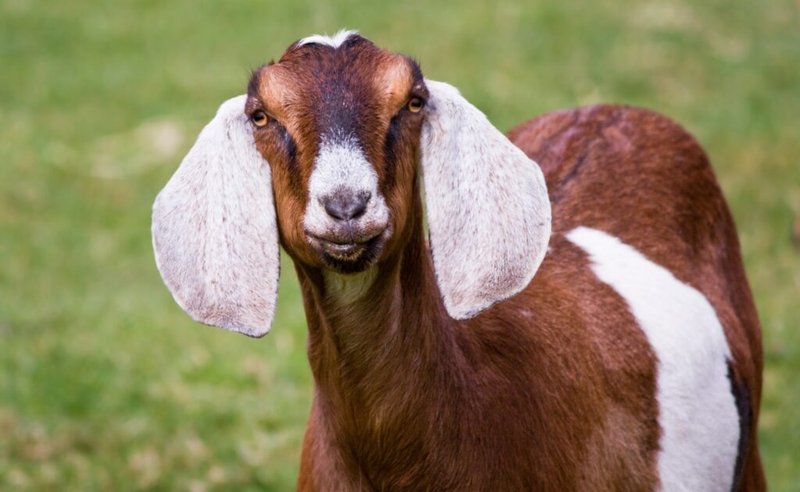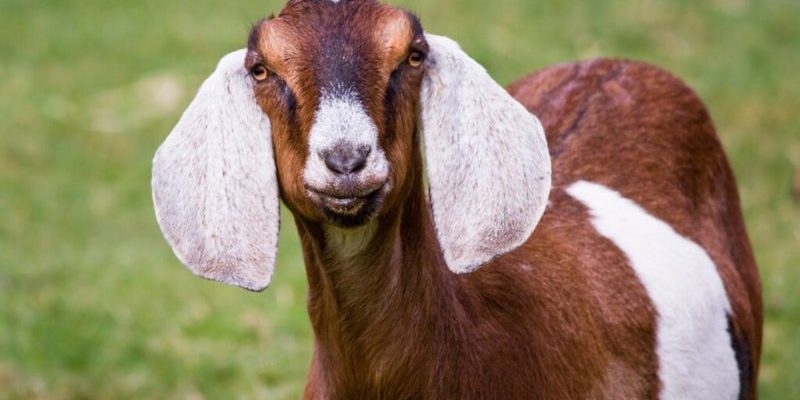
Here’s the thing: Nubian goats come with their own set of quirks and needs. They’re not just cute faces; they require specific care and attention. So, if you’re thinking about keeping one, or even a couple, let’s dive deeper into whether these goats are the right fit for your lifestyle, home, or farm.
Understanding Nubian Goats: What Makes Them Special?
Nubian goats are known for their distinctive appearance and charming personalities. With their long, floppy ears and large, expressive eyes, they certainly stand out in a crowd. But it’s not just looks that make them popular. These goats are also recognized for their high milk production and rich, creamy milk, which is great for making cheese and yogurt.
Another standout feature is their friendly disposition. Nubians are often described as social and affectionate. They enjoy the company of humans and other animals, which makes them excellent companions. If you’re looking to add a bit of life to your farm or home, a Nubian goat might just be the cheerful addition you need.
However, like any animal, they come with their own set of requirements. They need enough space to roam, proper feeding, and social interaction. Think of them as a bit like a small dog. They love being around people and thrive when they’re part of the family.
Space Requirements: Can You Accommodate a Nubian Goat?
When it comes to keeping a Nubian goat, adequate space is essential. These goats are active and playful, so they need room to explore and run around. A small backyard might not be enough for them to thrive.
Typically, a single Nubian goat requires at least a minimum of 200 square feet of outdoor space. If you’re looking to have more than one, make sure you have even more room to accommodate them. Goats are herd animals, meaning they feel happiest when they have a buddy to play with.
If you’re considering them as pets in a suburban area, check your local zoning laws first. Some places have restrictions on livestock, so it’s important to make sure you’re following the rules. You wouldn’t want to fall in love with a goat only to find out you can’t keep one!
Feeding: What Do Nubian Goats Eat?
Feeding a Nubian goat is a little like preparing meals for a picky toddler. They can be a bit fussy about their food! Generally, a well-balanced diet consists of:
- Hay: Good quality hay is a staple for Nubians. Make sure it’s free from mold and dust.
- Grains: You can feed them grains, but in moderation, as too much can lead to health issues.
- Fresh Vegetables: They love treats like carrots, apples, and leafy greens. These make for great snacks!
- Minerals and Vitamins: They need minerals like calcium and phosphorus to stay healthy.
You might be wondering how often to feed them. Typically, they should graze throughout the day, so providing fresh hay and letting them roam can mimic their natural behavior. Keep in mind that good nutrition is key to their health, especially if you’re milking them for that rich Nubian milk!
Social Needs: The Importance of Companionship
Nubians thrive on social interaction. Think of them as the social butterflies of the farm. They love being around other goats, humans, and even other animals. A solitary Nubian goat can become lonely and stressed, which can lead to behavioral issues.
If you’re planning to keep Nubians, consider getting at least two so they can keep each other company. They’ll engage in playful antics, helping each other stay active and happy. Plus, it’s delightful to watch them interact and bond.
If you’re looking for a pet goat and can only get one, ensure you dedicate enough time each day for play and interaction. Goats are not fans of being alone for long. They need love and attention just like any family pet.
Health Care: What to Watch Out For
Keeping a Nubian goat healthy is crucial for their quality of life. Regular check-ups with a veterinarian familiar with goats are important. They can help with vaccinations, deworming, and any health issues that may arise.
Some common health concerns for Nubians include:
- Foot Rot: This is a bacterial infection affecting the hooves and can be prevented with proper hoof care.
- Digestive Issues: Goats can be sensitive to changes in diet, so introduce new foods gradually.
- Respiratory Problems: Watch for coughing or nasal discharge, as these can signify illness.
Taking the time to understand your goat’s health needs will pay off. You want your Nubian to be as healthy and happy as possible, ensuring they’re lively and playful for years to come.
The Cost: What to Consider Financially
Owning a Nubian goat comes with financial responsibilities. Think of it like budgeting for a new pet. Upfront costs can include purchasing the goat, building a secure shelter, and preparing the outdoor space. On average, a Nubian goat can run between $150 to $500 depending on its age, lineage, and whether it’s registered as a breed.
Ongoing costs include:
- Food: Quality hay and grains can add up, especially if you have multiple goats.
- Healthcare: Regular vet visits and preventative care are essential for their wellbeing.
- Shelter and Fencing: Safe and adequate shelter is necessary to protect them from the elements and predators.
While Nubian goats can be a fantastic addition to your farm or home, it’s crucial to consider these financial responsibilities. They’re not just pets; they’re ongoing commitments.
Is a Nubian Goat the Right Choice for You?
Deciding whether a Nubian goat is a good fit for you ultimately boils down to your lifestyle and preferences. If you have the space, time, and love to give, they can be an excellent companion. However, they do require commitment and care, similar to owning a dog or cat.
Before making the leap, consider your living situation, resources, and whether you’re prepared for the responsibilities that come with goat ownership. If you feel confident in your ability to provide for a Nubian and are excited about the joys they can bring, then go for it!
In conclusion, Nubian goats can be a wonderful addition to your life. With their charm, companionship, and utility, they might just be the perfect fit for your farm or home.

